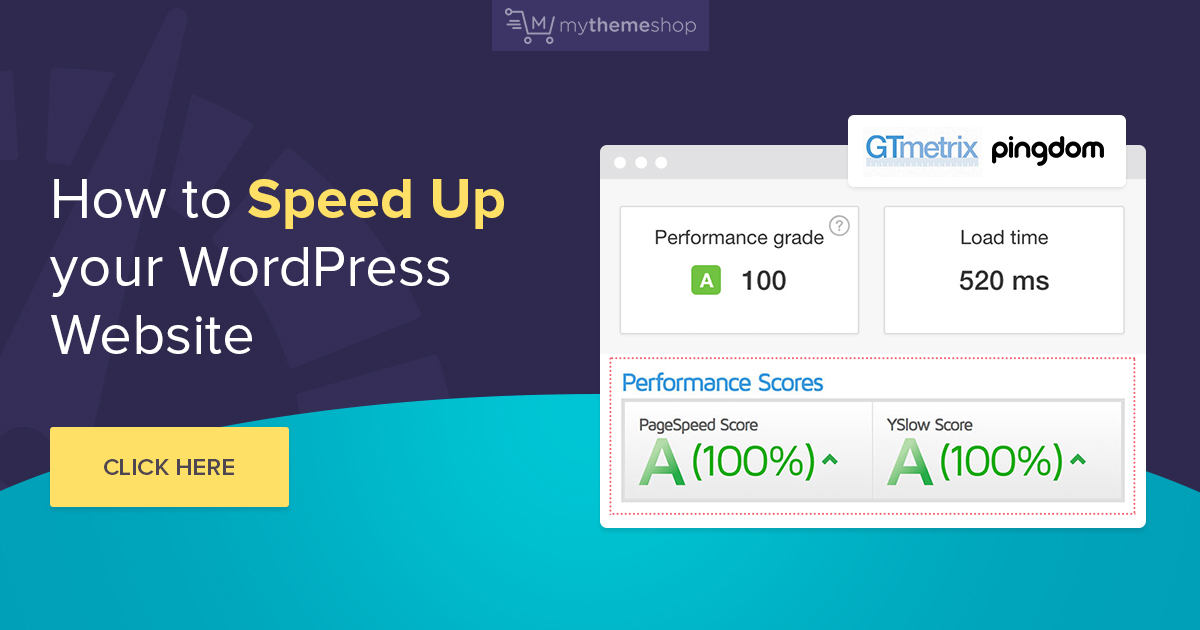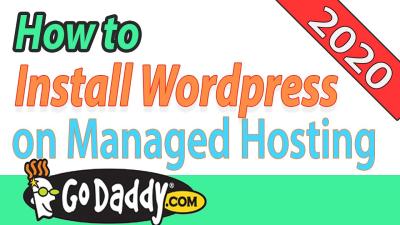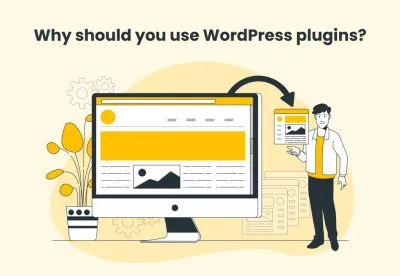Hey there! If you’re running a WordPress website, you probably know that speed matters a lot—both for your visitors and for your search engine rankings. But did you know that the type of hosting you choose plays a big role in how fast your site loads? Not all hosting is created equal, and making the right choice can significantly boost your site’s performance. In this section, we’ll explore what WordPress hosting is and why it has such a huge impact on your website’s speed and overall user experience. Let’s dive in!
Key Factors to Consider When Choosing WordPress Hosting for Speed

Picking the perfect hosting provider isn’t just about price or features—it’s about matching the hosting environment to your website’s needs for optimal speed. Here are some key factors to keep in mind:
- Server Performance and Resources: Look for hosts that offer high-performance servers with SSD storage, ample RAM, and modern CPUs. These elements help your site load faster and handle traffic spikes smoothly.
- Hosting Type: Shared hosting is budget-friendly but can slow down your site if neighbors are noisy. Consider managed WordPress hosting, VPS, or dedicated servers for better speed and stability.
- Content Delivery Network (CDN): A CDN distributes your website content across multiple global servers, so visitors load data from the closest location. Choosing a host that integrates easily with CDNs can drastically reduce load times.
- Server Location: Hosting your site closer to your target audience reduces latency. If most visitors are in North America, choose a server in the same region.
- Optimized Caching: Caching stores static versions of your pages, so they load instantly. Ensure your host offers server-side caching solutions or is compatible with popular caching plugins.
- Uptime and Reliability: A fast website is useless if it’s often down. Pick providers known for high uptime percentages to keep your site accessible and speedy.
Remember, investing in the right hosting setup might cost a bit more upfront, but it pays off with faster load times, better SEO, and happier visitors. Take your time to evaluate these factors, and you’ll be on your way to a snappy, efficient WordPress site!
3. Top WordPress Hosting Providers for Fast Website Performance
If you’re serious about making your WordPress site lightning-fast, choosing the right hosting provider is essential. Not all hosts are created equal, especially when it comes to speed, reliability, and support. Let’s take a look at some of the top contenders that are known for delivering top-notch performance for WordPress sites.
First up, SiteGround is a favorite among WordPress users. They offer optimized environments specifically tuned for WordPress, which means faster load times and smoother performance. Their built-in caching system, SuperCacher, helps reduce server response times, and their support team is highly knowledgeable about
Next, WP Engine is a premium managed WordPress hosting provider. They focus exclusively on WordPress, which means their infrastructure is highly optimized. Features like automatic updates, daily backups, and a dedicated CDN make sure your site stays fast and secure. Many large sites and enterprises trust WP Engine for its performance and reliability.
Kinsta is another excellent choice. Powered by Google Cloud Platform, Kinsta offers cutting-edge infrastructure with impressive speed and scalability. Their dashboard is user-friendly, and they provide free CDN, caching, and performance monitoring tools that help keep your site speedy.
Finally, don’t overlook Flywheel — a hosting provider designed specifically for creatives and small businesses. Their platform is fast, easy to use, and includes features like built-in caching, free migrations, and a staging environment to test changes without affecting your live site.
In summary, when selecting a hosting provider for speed, look for those offering:
- Optimized WordPress environments
- Built-in caching solutions
- Use of fast, reliable infrastructure (like CDN and SSD storage)
- Automatic updates and security features
Remember, investing in a high-quality hosting provider can significantly improve your website’s load times, user experience, and even SEO rankings. It’s worth doing a bit of research and choosing a provider that aligns with your site’s needs and growth plans.
4. Comparing Shared, Managed, VPS, and Dedicated Hosting for WordPress
Now that we’ve covered some top hosting providers, let’s break down the main types of hosting available for WordPress sites. Understanding the differences can help you make a smarter choice based on your needs, budget, and technical skills.
Shared Hosting
Shared hosting is like renting a room in a house — your website shares server resources with many other sites. It’s usually the most affordable option and great for beginners or small websites with low traffic.
- Pros: Low cost, easy setup, maintenance handled by host
- Cons: Limited resources, slower speeds during traffic spikes, less control
Examples include Bluehost, HostGator, and SiteGround’s basic plans. Ideal if you’re just starting out or have a hobby blog, but not recommended for high-traffic or performance-critical sites.
Managed WordPress Hosting
Managed hosting is like having a personal assistant for your website. The host takes care of all technical aspects — updates, security, backups, caching — so you can focus on creating content.
- Pros: Optimized for WordPress, better performance, automatic updates, excellent support
- Cons: Higher cost than shared hosting, less flexibility for server configurations
Providers like WP Engine, Kinsta, and Flywheel fall into this category. Perfect for busy professionals or businesses who want reliable performance without managing server details.
VPS (Virtual Private Server) Hosting
VPS hosting is a step up from shared hosting. Your website still shares a physical server, but you get dedicated portions of server resources. It’s like having your own apartment — more privacy and control.
- Pros: Greater control, better performance, scalable resources
- Cons: More complex setup, requires some technical knowledge
Popular VPS providers include DigitalOcean, Linode, and InMotion Hosting. Good for growing websites that need more power but aren’t ready for a dedicated server.
Dedicated Hosting
Dedicated hosting means you have an entire physical server all to yourself. It’s like owning a house — maximum control, performance, and security.
- Pros: Top performance, full control, high security
- Cons: Expensive, requires technical expertise to manage, higher maintenance
This option is best suited for large, high-traffic websites, eCommerce stores, or enterprise-level sites where performance and security are critical.
In summary, your choice depends on your website’s size, traffic, technical skills, and budget. For most small to medium sites, managed WordPress hosting offers the best balance of performance and ease of use. As your site grows, you might consider upgrading to VPS or dedicated hosting for more control and power.
5. Tips to Optimize Your WordPress Site for Faster Loading Times
Let’s face it — a slow website can be a real buzzkill for visitors and can hurt your search engine rankings too. The good news? There are simple yet effective ways to boost your WordPress site’s speed. Here are some practical tips to get you started:
Optimize Images
Large, unoptimized images are often the biggest culprits behind slow load times. Use tools like TinyPNG or ImageOptim to compress your images without sacrificing quality. Moreover, consider using formats like WebP, which offer high quality at smaller file sizes. Implementing lazy loading — where images load only when they come into view — can also significantly improve page load speeds.
Leverage Caching
Caching creates static versions of your pages, so visitors don’t have to load all the dynamic content each time. Plugins like W3 Total Cache or WP Super Cache make it easy to enable caching on your site. This reduces server load and speeds up delivery, especially for returning visitors.
Minify and Combine Files
CSS, JavaScript, and HTML files often contain unnecessary spaces and comments. Minifying these files removes the excess data, making them smaller and faster to load. Additionally, combining multiple CSS or JavaScript files into a single file reduces HTTP requests, which can boost performance. Plugins like Autoptimize or Asset CleanUp can help automate this process.
Use a Content Delivery Network (CDN)
A CDN distributes your website’s static assets across multiple servers worldwide. When someone visits your site, the CDN serves the content from the server closest to them, reducing latency. Popular options include Cloudflare and StackPath. Integrating a CDN can make your site feel snappy no matter where your visitors are located.
Choose a Lightweight Theme and Plugins
Not all themes and plugins are created equal. Heavy themes with lots of features can slow down your site. Opt for lightweight, well-coded themes like Astra or GeneratePress. Similarly, only install plugins that are essential and regularly maintained. Remove or deactivate plugins you’re not using to keep your site lean.
Regularly Update Your WordPress Core, Themes, and Plugins
Outdated software can introduce security vulnerabilities and performance issues. Keep everything up to date to ensure optimal performance and security. Developers often release updates that improve speed and fix bugs, so it’s a good habit to check for updates regularly.
6. Conclusion and Recommendations for Selecting the Best WordPress Hosting
Choosing the right hosting provider is a crucial step toward ensuring your WordPress site loads quickly and performs reliably. Remember, not all hosting is created equal — what works for a small blog might not cut it for a busy e-commerce site. Here are some key takeaways and recommendations:
- Assess Your Needs: Consider your website’s size, traffic levels, and specific features you require. Do you need managed hosting, or are you comfortable handling some technical aspects yourself?
- Prioritize Speed and Uptime: Look for hosts that guarantee high uptime (99.9% or higher) and have a reputation for fast server response times.
- Check for Optimizations: Does the host offer built-in caching, CDN integration, and support for the latest PHP versions? These are indicators of a hosting environment optimized for WordPress.
- Support and Security: Reliable customer support and security features (like SSL certificates and malware scanning) are essential for peace of mind.
- Budget Considerations: While premium hosting can be more expensive, it often provides better performance. Balance your budget with your performance needs.
Some recommended options include:
| Hosting Provider | Type | Highlights |
|---|---|---|
| SiteGround | Managed WordPress Hosting | Excellent support, strong performance, built-in caching |
| WP Engine | Premium Managed Hosting | Optimized for WordPress, top-tier security, expert support |
| Bluehost | Shared/Managed Hosting | Affordable, good for beginners, includes free SSL |
| Kinsta | Premium Managed Hosting | Powered by Google Cloud, excellent speed, developer-friendly |
In the end, the best WordPress hosting for you depends on your specific needs and budget. Prioritize providers that focus on speed, security, and excellent support. Pairing a great host with the optimization tips above will set your website up for success — faster, more reliable, and ready to grow!


